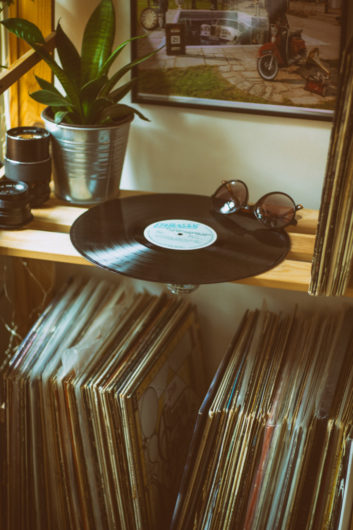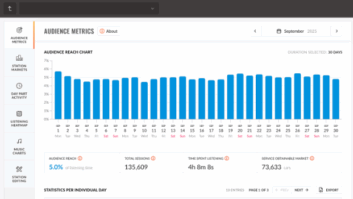The author is membership program director of the National Federation of Community Broadcasters. NFCB commentaries are featured regularly at www.radioworld.com.
How does your radio station handle artists accused of assault or inappropriate behavior? It is a bigger question to your listeners and community than you may think.
In the wake of #MeToo, more focus has come to musical performers at the center of major controversies. The power of these artists and how the music industry reacts to — and oftentimes looks the other way in the event of — unacceptable and sometimes illegal actions has been one of the big music media stories of late.
Pitchfork summed up a spate of news coverage over the last two years of mainstream pop and hip-hop artists, such as R. Kelly, 6ix9ine and the late XXXTentacion. In February, indie pop star Ryan Adams was the subject of a New York Times investigation into claims Adams used his position to prey on women. Adams was thereafter probed by the FBI amid claims at least one female was under 18 at the time. Spotify took it a step further by temporarily yanking some artists from its lucrative streaming pool. For musicians like Kelly, who has long had a cloud of pedophilia and abuse accusations following him, time is apparently up, as he faces various charges.
In response, commercial radio has had an uneven policy. Some may recall the commercial country radio boycott of the Dixie Chicks for speaking out against former President George W. Bush, but pop and urban commercial radio has rarely been as assertive about musicians’ words and actions. The acts that are marginal on playlists may be removed, but it seems popular performers are not going anywhere.
[Read: Community Broadcaster: How Giving Changed]
The avoidance on the commercial radio side to challenge performers whose actions may run counter to audience’s perceived values has prompted extra attention for noncommercial broadcasters. Current covered a Non-Commvention panel last week on how noncommercial radio stations should respond to artists facing allegations of abuse or other objectionable behavior. The viewpoints expressed reflect a conflict that, I expect, many stations are still attempting to figure out.
“If the majority of my audience is going ‘icky’ about, say, Michael Jackson, then maybe I don’t need to play Michael Jackson,” panelist Jim McGuinn said, according to Current. “I don’t know if it stays that way forever. Like, maybe that changes? I don’t know. But for now, whenever we talk about these issues, we say, look, let’s do this for now because I don’t know if I have the absolute moral authority on anything.”

The paper notes Stacy Owen countered this with the idea that noncommercial stations are in a unique position to take a stand in a way commercial radio may not.
The unspoken part of this matter, on the panel and elsewhere, is how social media has changed the stakes for radio. Look no further than groups like Mute R. Kelly, which have gained momentum and attention through getting the issue out on Facebook and elsewhere. Listeners see these conversations online and opinions change about the performer and the institutions that appear to support him. We also live in an age where anyone with a following and even those without can demand accountability in ways previous generations could not. People now interact with brands all the time and expect responses, and deference to a degree. Such power has pushed commercial and nonprofit organizations to carefully consider their positions. If Twitter, which skews younger, wealthier and more liberal than the rest of the nation, was a force in 2003, it is doubtful country radio’s ban on the Dixie Chicks would have gone down without repercussions on advertisers and stations.
The Non-Commvention’s discussion should inspire your noncommercial outlet to consider its own stance on what it broadcasts and how it communicates its vision to its donors and listeners. Community radio has oftentimes embraced a freewheeling attitude about programming, where individual DJs get to curate whatever they want. For some stations, this broader conversation may press you to think deeply about volunteer policies. What are your community obligations? What are the on-air standards, those quality guidelines that go beyond general federal regulations or “clean up your trash” type of local rules, to which you hold your volunteers and staff? And where is the line, in the event you have one, when it comes to content, insofar as performers on the record with racist, sexist or otherwise abhorrent statements and/or accusations against them?
To be clear, how one separates the art from the artist is one of popular culture’s most enduring debates. Whether it is the anti-Semitic composer Richard Wagner, the violent misogynistic lyrics of Eminem, Behemoth’s Adam “Nerga” Darski’s frequent legal trials for anti-Christian viewpoints, Kanye West’s remarks on slavery and President Donald Trump or Morrissey’s hypernationalist ranting, the words and actions of musicians stir up plenty of feelings among the public. How your station handles particular musicians in an age of greater awareness and means to articulate that awareness may be one of the better stories still untold.
[Subscribe to our newsletter and get it delivered right to your inbox.]







